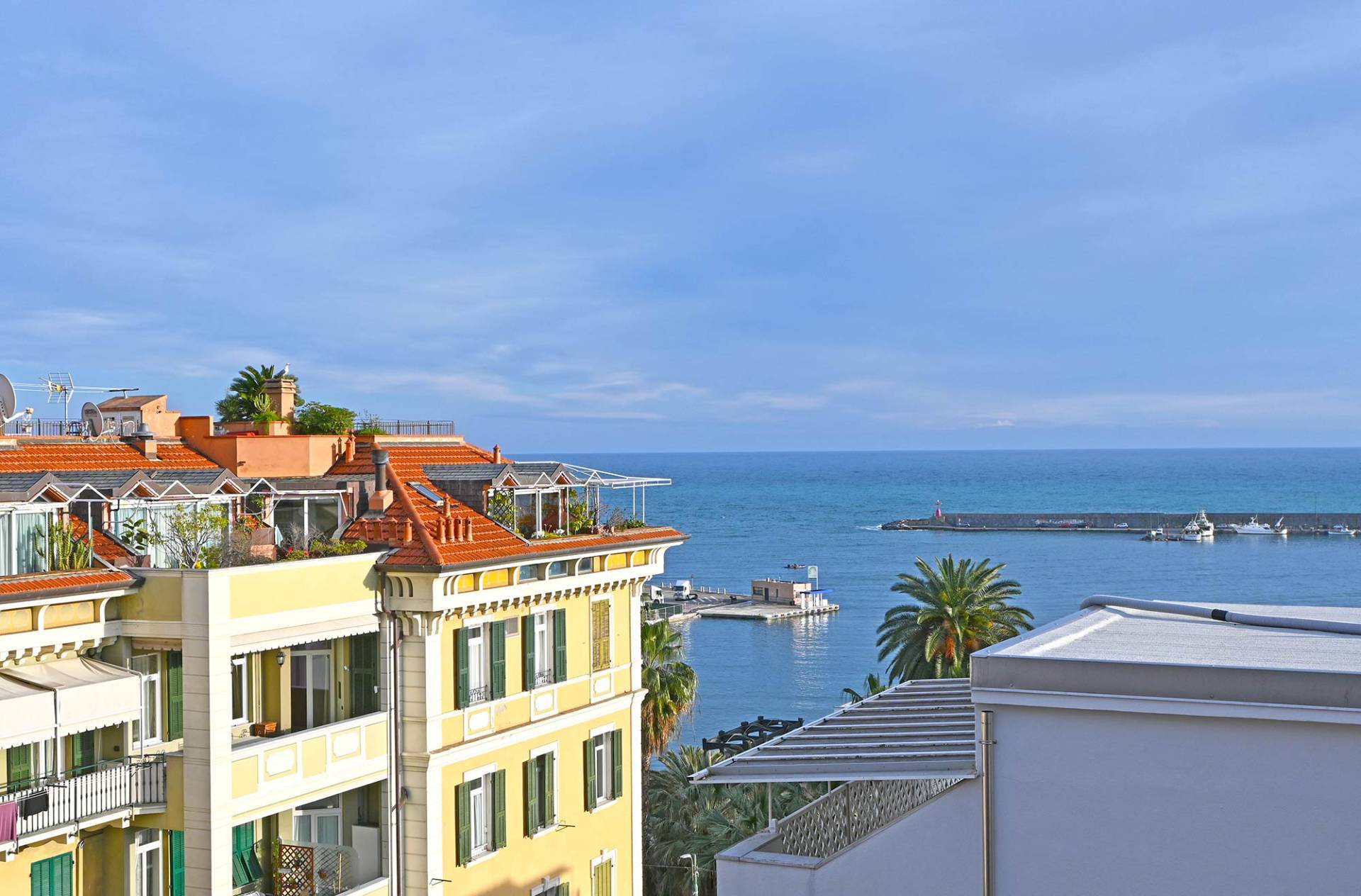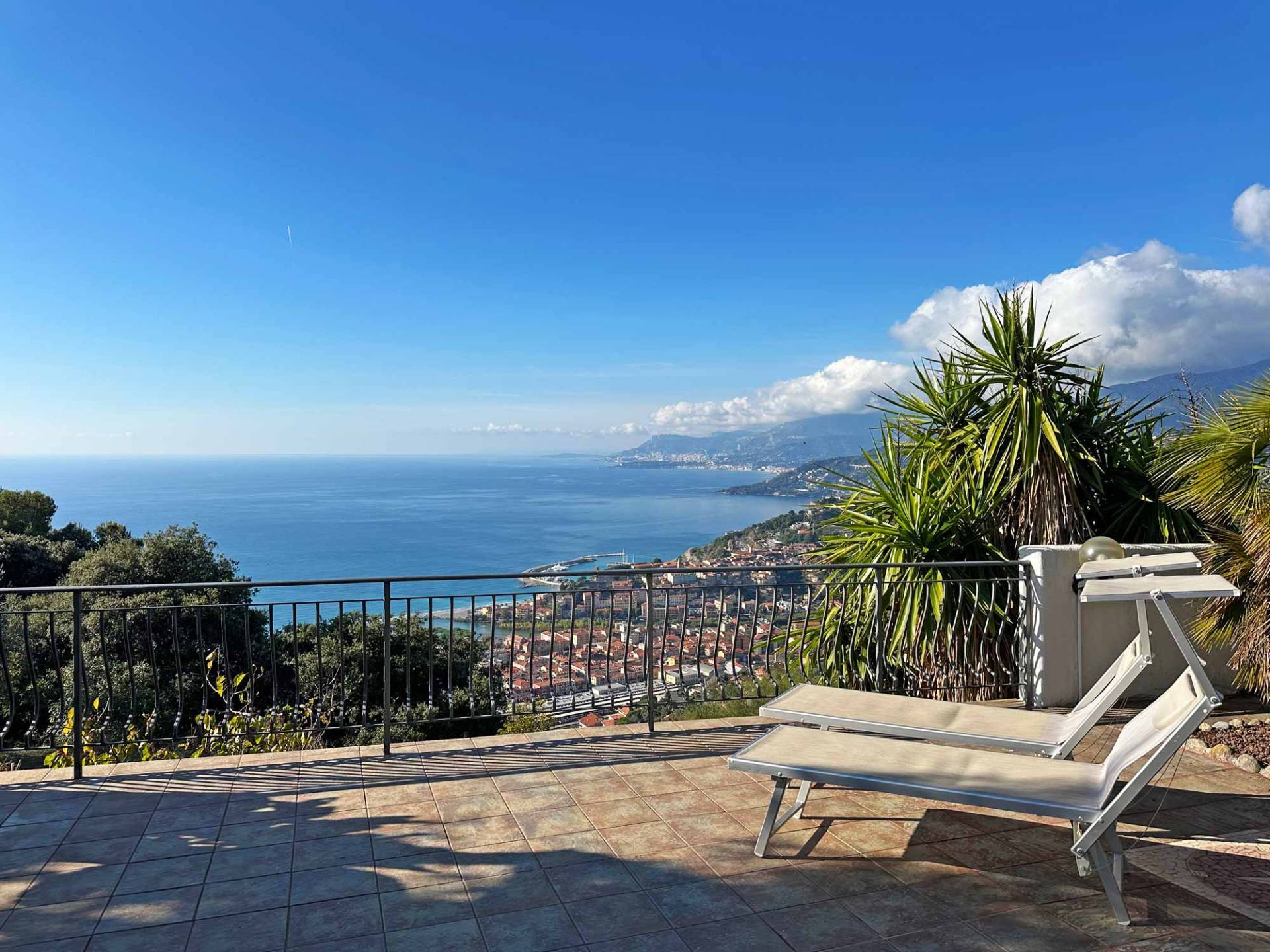Snapshot Qatar: A glamorous peninsula in the Arabian Gulf
Qatar, a small yet thriving nation in the Middle East, has gone under rapid and remarkable development over the last several years. Following the discovery of oil in the 20th century, Qatar has proved itself to be a major player on the global real estate and tourism stage.
The peninsular nation’s economy was originally fueled by pearl-diving and fishing; now, owing to its abundance of natural oil reserves, Qatar boasts one of the highest global GDPs per capita. This development has been spurred on by its prudent investment choices and innovative real estate projects and developments that have reshaped the country.
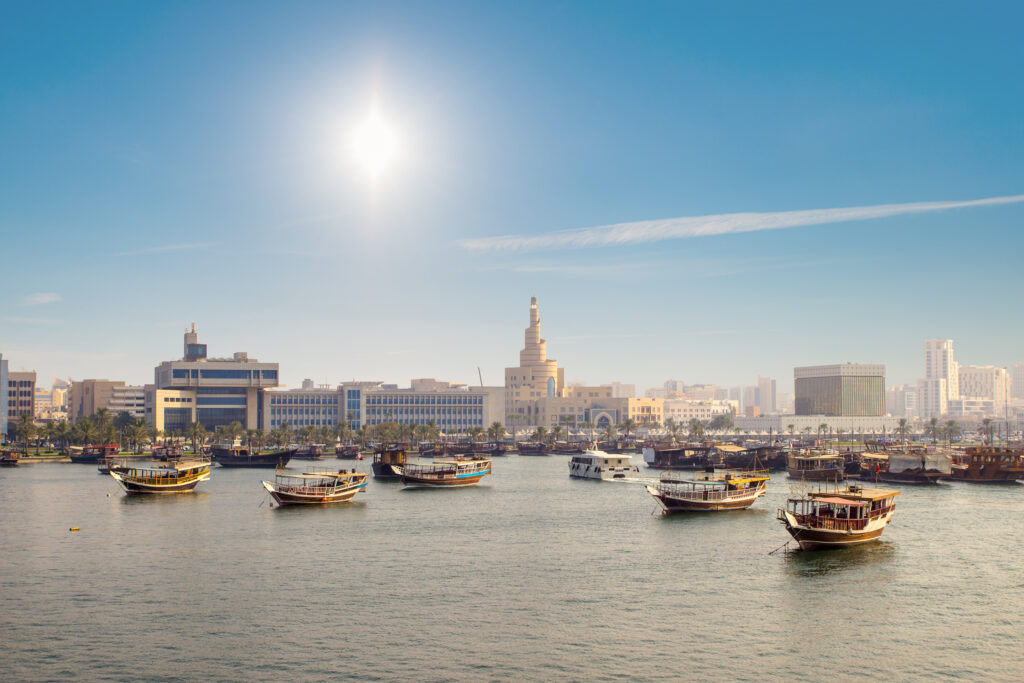
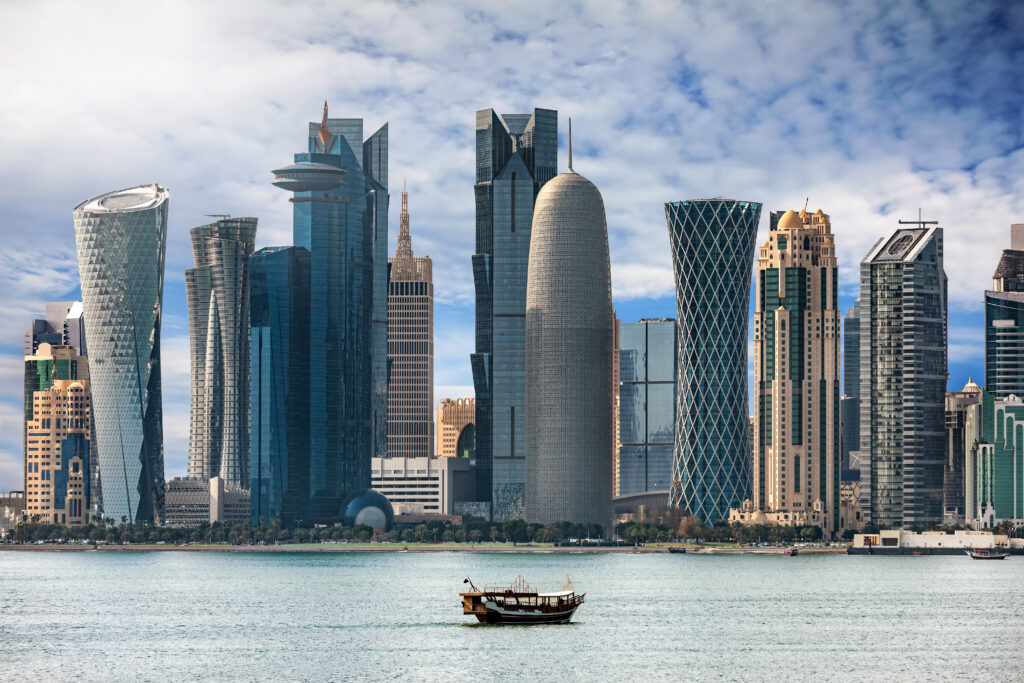
A Brief History
Historically, Qatar was a key hub for trade, fishing, and pearl-diving. Pearl-diving was particularly popular in the 18th and 19th centuries, forming a large part of the country’s economy. This popularity waned by the 1900s, when other countries began to dominate the export of pearls.
The discovery of oil in the city of Dukhan in 1940 marked a turning point for the country. The sudden availability of vast natural gas reserves altered the trajectory of Qatar from a small and humble nation to one with immense wealth. Qatar has been an independent nation as of 1971, previously having been a British protectorate since 1913. Following Qatar declaring independence, they began to leverage their array of available resources to spur infrastructure and economic development.
Key information: a look into Qatar’s government and economy
Qatar is an absolute monarchy and has been ruled by the Al Thani family circa the mid-1800s. Qatar’s current Emir, Sheikh Tamim bin Hamad Al Thani, has been a key part in the country’s efforts to modernize while maintaining its traditions and rich cultural identity. The stability of the monarchy has been crucial to Qatar’s rapid and successful development.
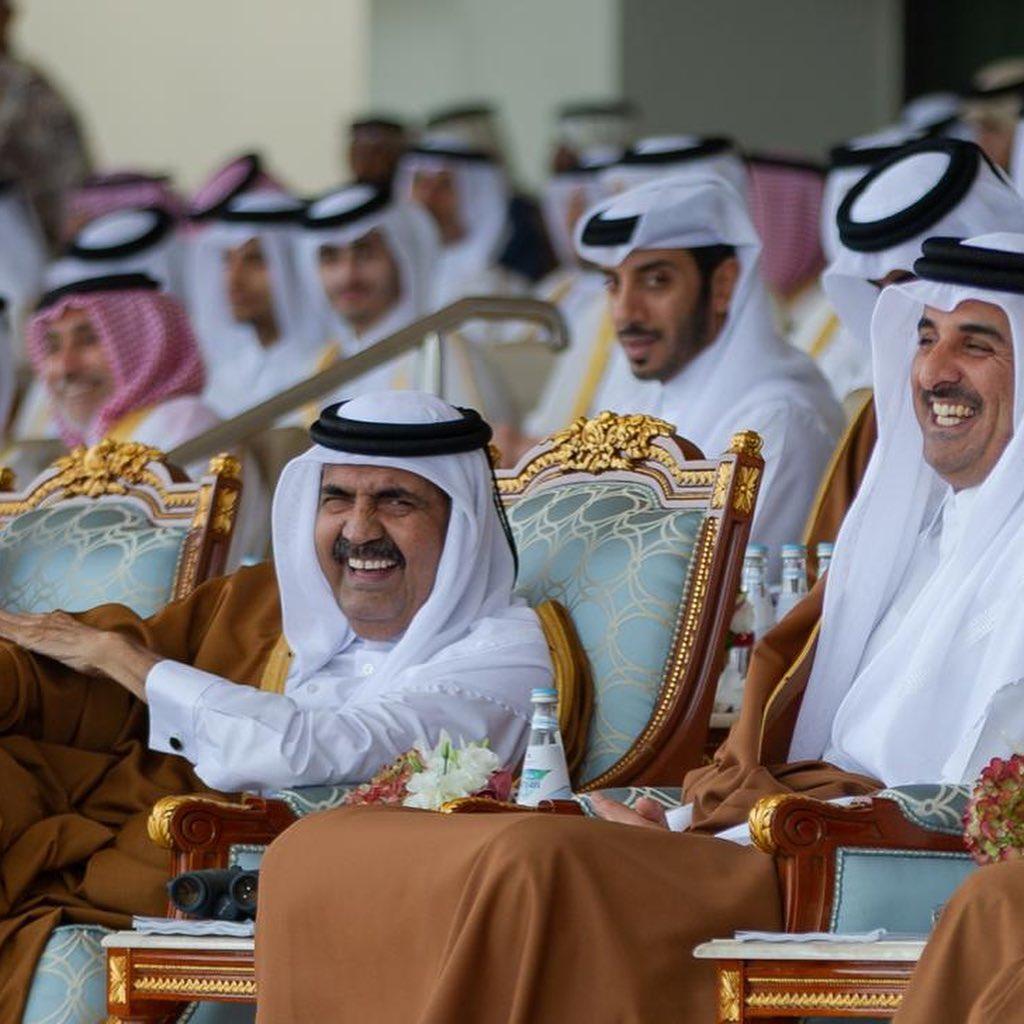
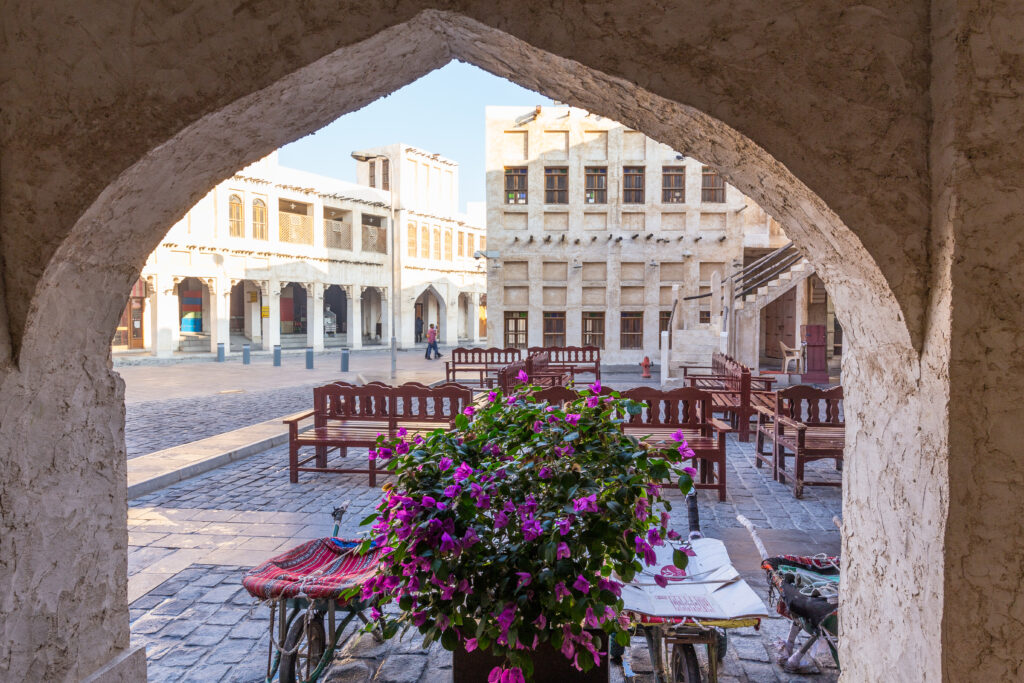
As detailed previously, the strength of the Qatari economy has long been dependent on the abundance of natural gas. The capital city of Doha is the country’s economic hub and home to a multitude of multinational corporations, financial institutions, and state-run businesses that manage the nation’s wealth. For instance, the QIA (Qatar Investment Authority), which is central to global investments and has helped to secure Qatar’s financial stability long-term and beyond the use of fossil fuels. Founded by the State of Qatar in 2005, the QIA is one the largest sovereign wealth funds in the world.
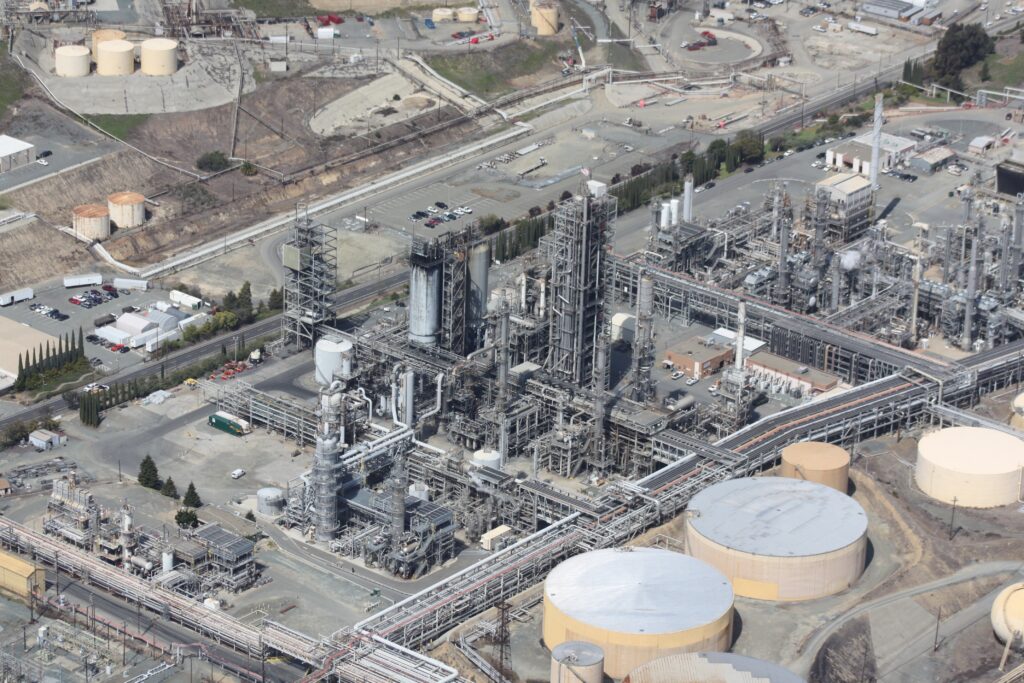
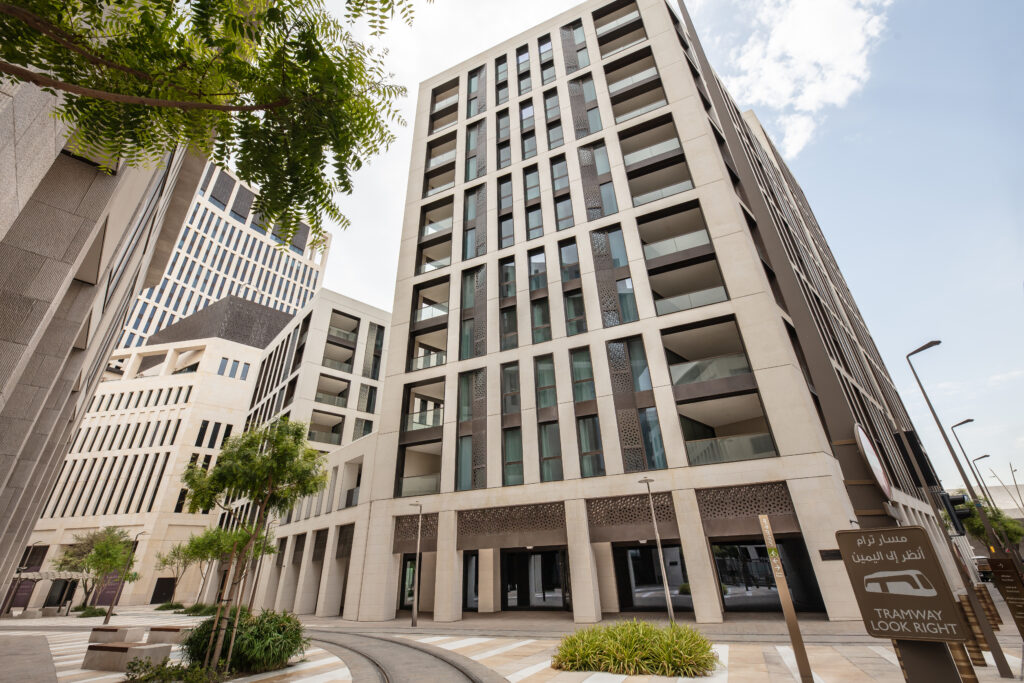
Qatar has a strong banking sector, considered one of the most robust in the region. The country has positioned itself as a prime location for financial services, and the country’s impressive development is also reflected in the growing number of financial centers and banks in the country. Its financial and business sector is regulated by the Qatar Financial Centre Regulatory Authority, which encourages innovation while maintaining strict compliance, providing a secure and beneficial destination for foreign investors.
Qatar’s Rapid Development: Becoming a Desert Metropolis
Qatar has heavily invested in tourism, infrastructure, and real estate projects. Doha has evolved into an ultra-modern and global hub with world-class facilities, luxury hotels, and sleek skyscrapers. Doha’s once sparse skyline is now a sight to behold, with glittering towers standing tall over bright blue water.
There are several developmental projects that stand out in a country full of wonderful real estate opportunities:
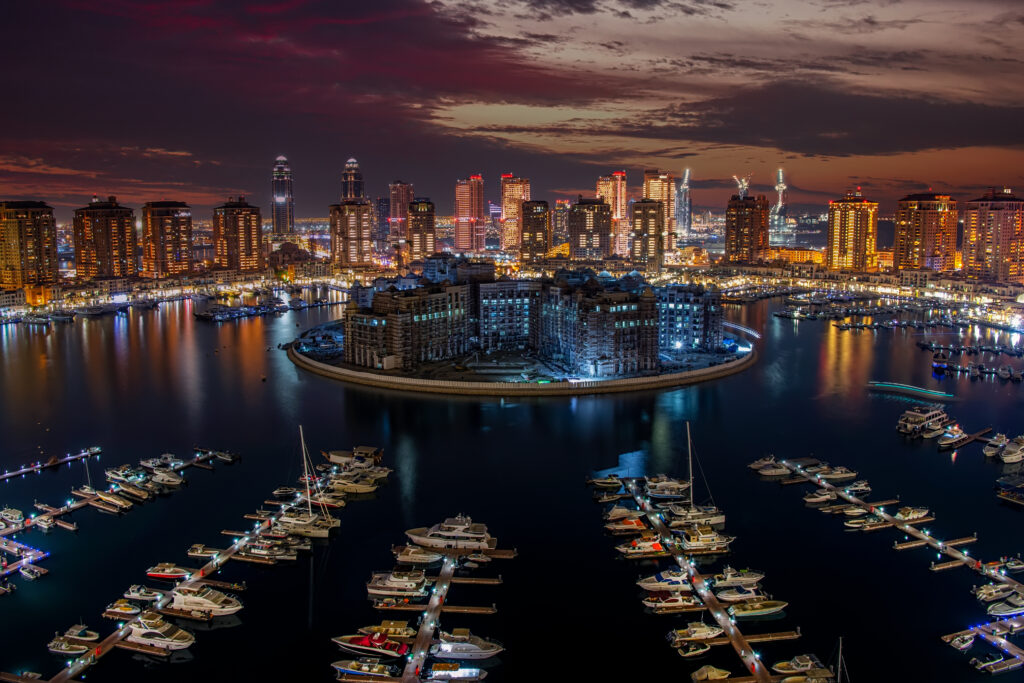
The Pearl: this stunning man-made island is a marvelous display of natural beauty and modern design. Featuring elegant residential apartment buildings with pristine views of the sparkling Arabian Gulf, it is the place to be. It also has an endless amount of things to do from watching the latest blockbuster at a five-star cinema to soaking up the sun at a private beach.
Msheireb Downtown Doha: located in downtown Doha, this development is notable for its commitment to sustainability with its use of innovative smart cooling systems and solar energy. The project is architecturally fascinating, combining modern sensibilities with traditional Qatari building designs. The district has wonderful amenities and is pedestrian friendly, making a perfect place for residents and visitors.
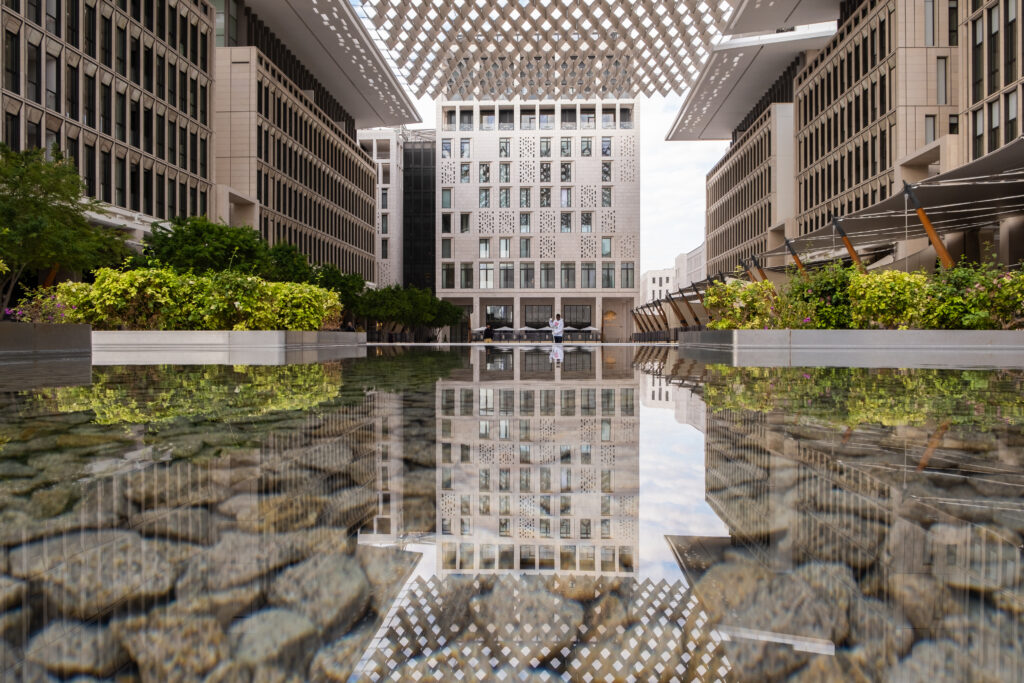
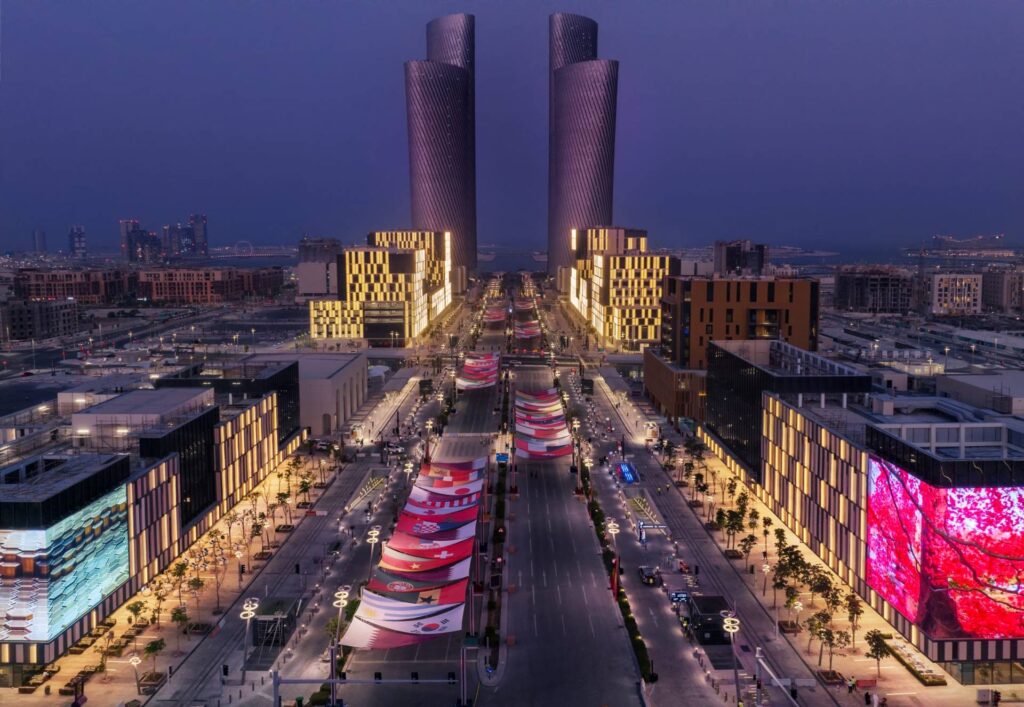
Lusail: situated just outside of the bustling center of Doha, Lusail is a brand new, sparkling city. The ambitious real estate project spans 38 square kilometers. The futuristic city features state-of-the-art amenities, a luxurious shopping mall, high-end hotels, modern office towers and glamorous residences right on the water.
Qatar on the global stage: FIFA 2022
In 2010, Qatar was further catapulted to international attention when it successfully bid to host the 2022 FIFA World Cup. This led to the undertaking of unprecedented levels of real estate development and infrastructure in the country.
In order to accommodate the influx of new guests and residents, Qatar invested billions into the construction of new hotels, roadways, stadiums, and a metro system.
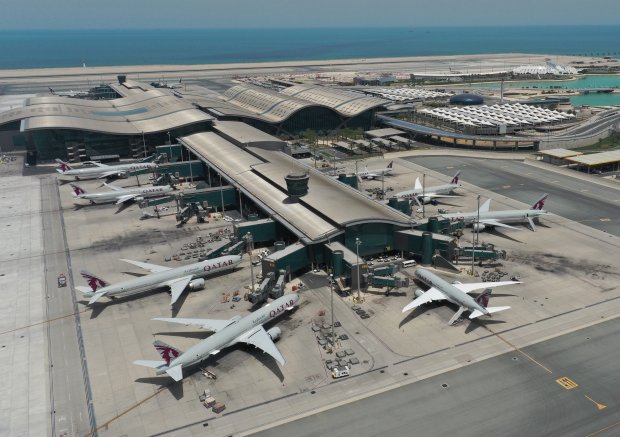
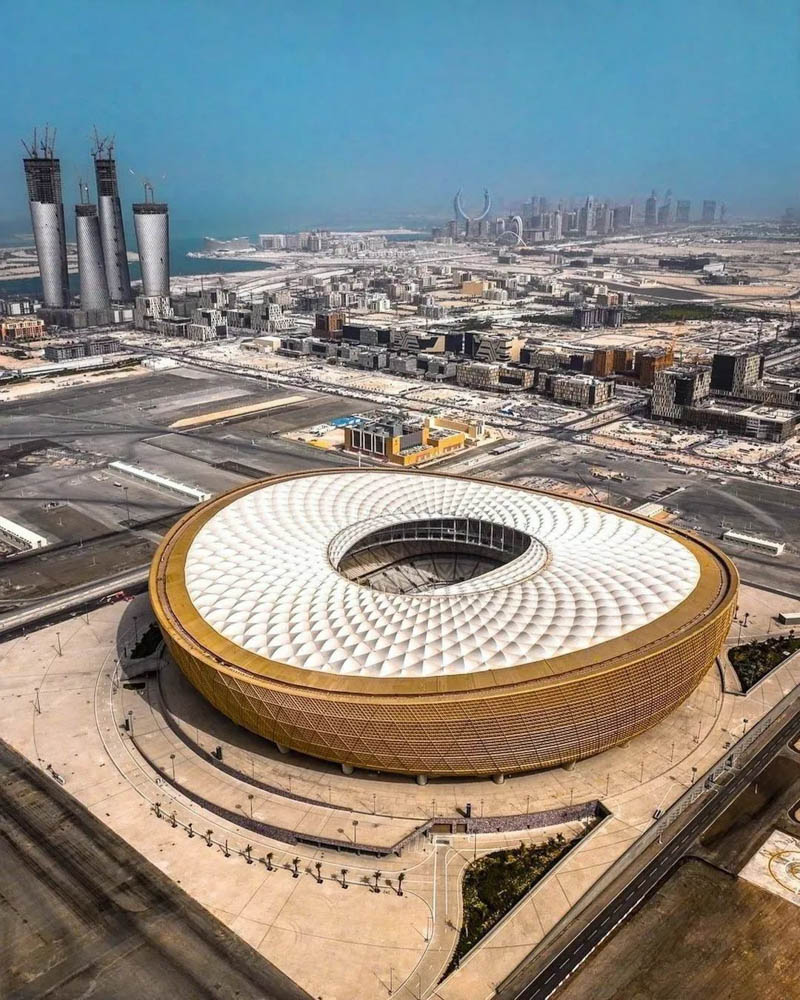
Now that the tournament has come and gone, the legacy of the World Cup still lingers in the country through the stadiums, new infrastructure, and entertainment hubs that are still able to be enjoyed. Several of the venues used for the games have been repurposed to function as community centers. The event was a key milestone in Qatar’s goal of being a globally recognized hub for business and tourism.
Qatar’s National Vision 2030 and Beyond
Following the success of FIFA 2022, Qatar is looking to the future and making concrete and ambitious plans for its continued growth. With the Qatar National Vision (QNV) 2030, the nation has set out a clear path for their development and evolution. According to the QNV 2030 official website, Qatar plans to further build the country and community “under four interconnected pillars: Human Development, Social Development, Economic Development and Environmental Development.”
Qatar’s National Vision 2030 sets out a blueprint to aid the country on its transformative journey, aiming to make Qatar a knowledge-based society that embraces modernity while retaining its unique cultural history. With large investments in real estate, technology, sustainability, and education being core aspects tenets of this project, there is a lot of optimism and excitement on the horizon. For example, the changing of all bus fleets to electric or Digital Government Strategy which aims to boost accessibility and efficiency by digitizing over 90% of government services.
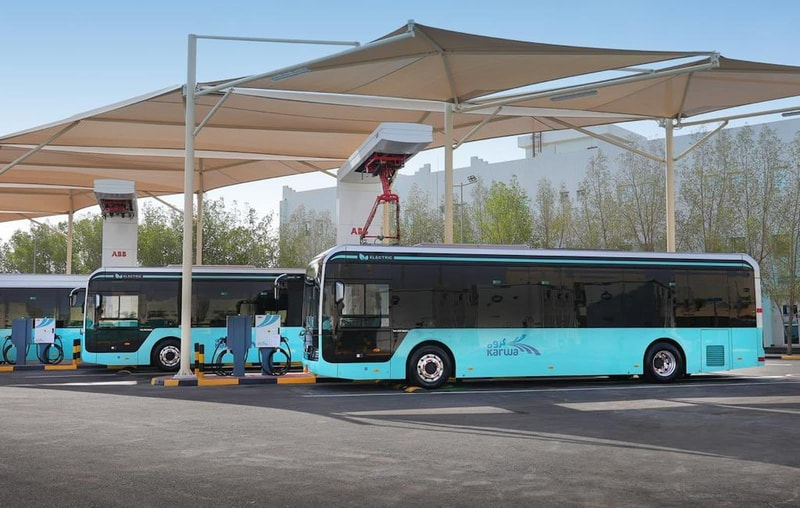
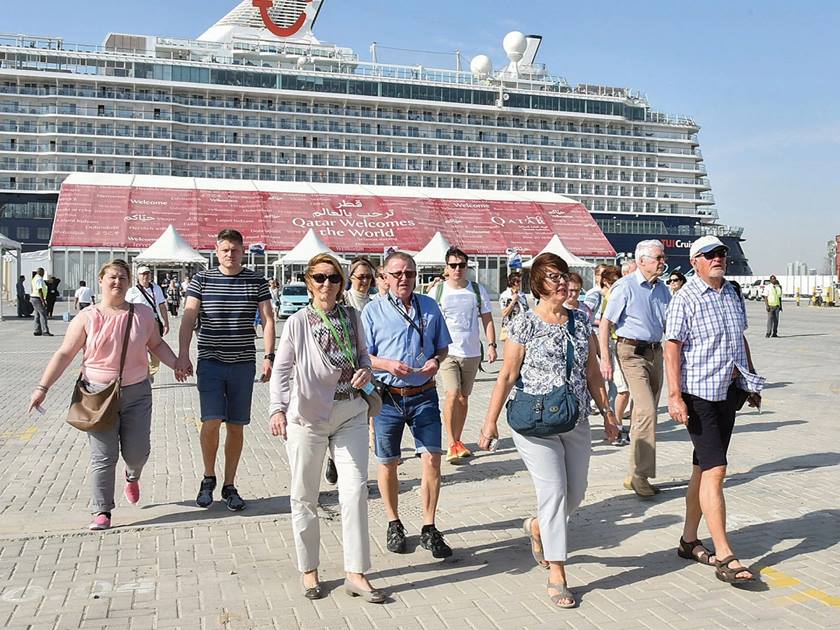
As Qatar continues to develop, diversify its economy, and attract new investors, it solidifies itself as a place to watch. With its strong real estate sector, burgeoning tourism market, robust business hub, enterprising plans for the future, and more, Qatar has firmly established its position as a modern and thriving nation. As Qatar continues to enact its long-term goals, it remains a regional and global epicenter of change, shaping the Gulf and beyond.

